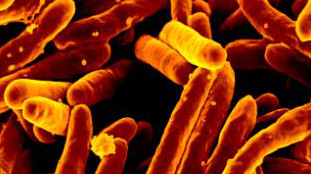Like most microbes, Mycobacterium tuberculosis is resourceful. The pathogenic bacterium accumulates mutations that help it thrive as it spreads from person to person through the air. Some mutations make the pathogen more virulent; others enhance its transmissibility. But perhaps the most concerning mutations, from a public health perspective, are those that help the infectious agent elude anti-tuberculosis drugs.
A slew of papers appearing online in Nature Genetics today (September 1) aims to enhance scientists’ understanding of drug-resistant tuberculosis (TB), using whole-genome sequencing to analyze more than 500 M. tuberculosis isolates representing genetically diverse strains from around the world. Two separate groups from Boston and Beijing sequenced hundreds of tuberculosis genomes to identify resistance-associated mutations. Meantime, investigators elsewhere in the U.S. used genetic and biochemical manipulations to deconstruct the emergence of resistance to one particular drug and researchers in Spain worked to reconstruct the evolutionary history of TB. Overall, the studies present evidence to suggest that drug resistance is in part caused by several mutations working in concert…







